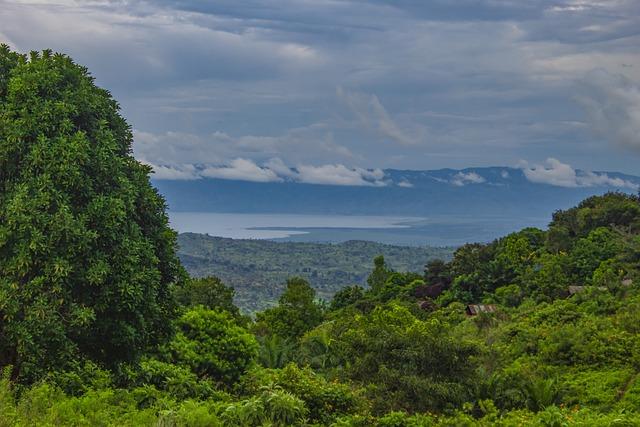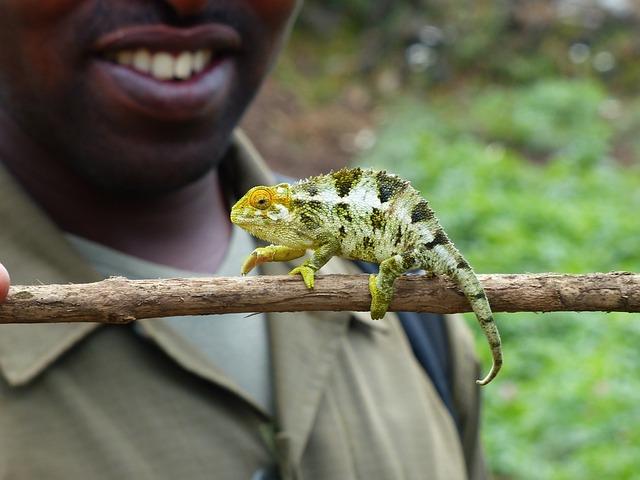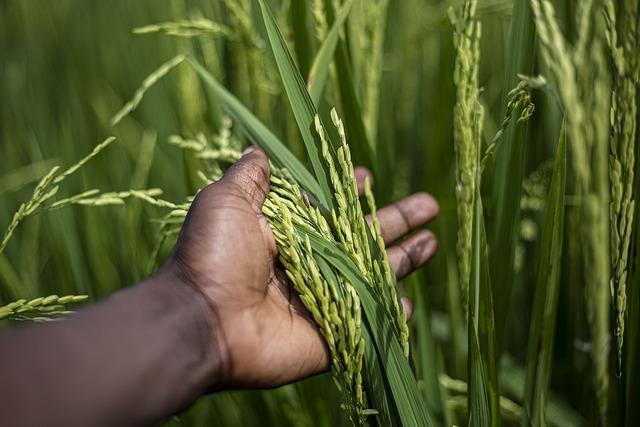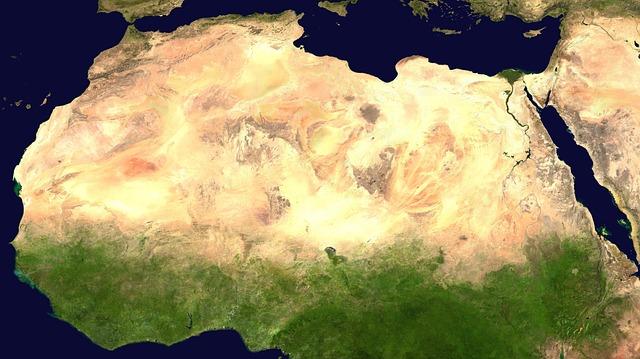Introduction
The Democratic Republic of Congo (DR Congo) has long been embroiled in a complex web of conflict,driven by a combination of past tensions,ethnic rivalries,and geopolitical interests. In recent years, the situation has escalated, drawing the attention of neighboring countries: Rwanda, Burundi, and Uganda. Each of these nations has a multifaceted role in the ongoing crisis,influenced by their own security concerns,economic aspirations,and historical grievances. As the humanitarian situation deteriorates and violence erupts in eastern regions such as north Kivu, understanding the involvement of these neighbors is crucial to grasping the broader dynamics of the conflict. This article explores the intricate relationships and calculated interventions that define the roles of Rwanda, Burundi, and Uganda in the DRC crisis, shedding light on both their motivations and the consequences of their actions for the region.
Understanding the Historical Context of the DR Congo Crisis

the crisis in the Democratic Republic of Congo has deep historical roots, shaped by a tapestry of political upheaval, colonial exploitation, and ethnic tensions. Following its independence from Belgium in 1960, the nation was thrust into chaos, marked by a power struggle and the assassination of its first prime minister, Patrice Lumumba. This vacuum of power led to the rise of Mobutu Sese Seko,whose authoritarian regime,lasting over three decades,was funded by Western powers during the Cold War. His rule fostered corruption and neglect, exacerbating the societal fractures that would later erupt into civil war in the late 1990s, a conflict often referred to as Africa’s World War due to the involvement of multiple nations.
The region’s interwoven relationships complicate the crisis further. Countries like Rwanda, Burundi, and Uganda have not only been spectators but key players, each motivated by their strategic interests. These nations have historically intervened militarily and politically,often justifying their actions as necessary to combat threats like the Democratic Forces for the Liberation of Congo (FDLR),a group composed predominantly of Rwandan Hutu militia responsible for the 1994 genocide in Rwanda. as a result,the DRC has become a battleground where regional rivalries play out,and local communities have been caught in a cycle of violence,exploitation and displacement. Key motivations behind these interventions can be summarized as follows:
- Security Concerns: Prevention of cross-border violence and militia incursions.
- Resource Interests: Control over vast mineral wealth, particularly tantalum, coltan, and diamonds.
- Political Influence: Establishing and maintaining friendly regimes within Congo to ensure regional stability.
Rwanda’s Strategic Interests and Military Involvement

rwanda’s involvement in the DR congo crisis is deeply rooted in its strategic interests, which intertwine with regional security dynamics and economic motivations. The country has historically viewed DR Congo as a crucial buffer zone against potential threats, particularly from armed groups and militias that have, in the past, spilled over the border. Kigali has consistently emphasized the need to combat negative forces that threaten Rwanda’s stability, frequently enough citing the activities of the Democratic Forces for the Liberation of Congo (FDLR) and other rebel factions that operate within Congolese territory. Moreover, Rwanda‚Äôs military engagement is driven by the broader objective of securing access to natural resources and fostering economic ties that benefit its advancement agenda.
Rwanda‚Äôs military involvement is not solely driven by security concerns; it also reflects a pragmatic approach to regional partnerships and influence. As a prominent player in the Eastern African landscape,Rwanda seeks to project its influence in multilateral forums and enhance its credibility among allies. The Rwandan Defense Forces (RDF) not only participate in joint military operations but also engage in diplomatic efforts aimed at conflict resolution. In this context, Rwanda collaborates with neighboring nations like Uganda and Burundi, sharing intelligence and resources to stabilize areas impacted by violence.Key aspects of Rwanda’s military strategy in the DR Congo include:
- Intelligence sharing: Collaborating with regional partners to gather and analyze intelligence on rebel movements.
- Direct military engagement: Conducting operations against insurgent groups threatening security.
- Humanitarian assistance: Providing support to displaced populations as part of a broader strategy to build goodwill.
Burundi’s Political Dynamics and Regional Alliances

in the intricate tapestry of East African politics, burundi has been navigating a complex landscape marked by both historical rivalries and new opportunities. The nation, still grappling with the aftermath of its civil war, is acutely aware of the delicate balances required to maintain regional stability. Following the escalation of the DR Congo crisis, Burundi has taken steps to assert its influence while aligning closely with regional partners such as Rwanda and Uganda. by engaging in multilateral discussions and supporting peacekeeping initiatives, Burundi aims to position itself as a key player capable of mediating conflicts that threaten the fragile equilibrium of the Great Lakes region.
Burundi’s political dynamics are further shaped by its evolving alliances and the necessity to counteract external threats. The government’s focus on security cooperation and economic partnerships with neighboring countries has redefined its role within the region. Some of the pivotal aspects of Burundi‚Äôs strategy include:
- Militarized Cooperation: Joint military exercises with Rwanda and Uganda to address border security and insurgency threats.
- Economic Ties: Enhancing trade relations to foster economic stability amidst regional unrest.
- Diplomatic Engagement: Active participation in regional forums aimed at conflict resolution within the DR Congo.
| Country | Role in DR Congo Crisis | Impact on Burundi |
|---|---|---|
| Rwanda | Military intervention and support for rebels | Bolstered security ties |
| uganda | Facilitating peace talks and hosting refugees | Strengthened economic partnerships |
| Burundi | Peacekeeping contributions and regional dialog | Enhanced regional influence |
Uganda’s Economic Engagement and Security Concerns

In recent years, Uganda has emerged as a key player in regional dynamics, particularly concerning its economic interests and security cooperation in the wake of the DR Congo crisis. The Ugandan government has been actively engaged in various economic initiatives aiming to capitalize on the rich natural resources of the region, often looking to forge partnerships with neighboring countries. This engagement includes:
- Trade agreements focusing on cross-border commerce that could benefit Ugandan businesses.
- Investment in infrastructure, particularly roads and railways, to enhance connectivity with DR Congo and other neighboring nations.
- Collaboration on natural resource management to ensure enduring extraction practices that could prevent conflict over resources.
Though, alongside these economic pursuits, Uganda faces notable security concerns arising from ongoing conflicts in the DR Congo and spillover effects into its territory. As instability in the region persists, Uganda has taken steps to strengthen its military readiness and engage in multilateral security frameworks.The key aspects of this situation include:
- The deployment of military forces to combat armed groups operating in eastern DR Congo.
- Intelligence sharing within regional blocs that help to monitor and address security threats effectively.
- Humanitarian assistance efforts aimed at addressing the fallout from violence,which concurrently helps bolster Uganda’s regional standing.
| Aspect | Economic Engagement | Security Concerns |
|---|---|---|
| Trade | Cross-border agreements | Armed group activities |
| Infrastructure | Road and rail investments | Military deployments |
| Resource Management | Sustainable practices | Intelligence collaboration |
The Impact of International Responses on the Regional Conflict

International responses to the ongoing crisis in the DR Congo have varied widely, with neighboring countries such as Rwanda, Burundi, and Uganda playing pivotal roles. The involvement of these nations has not only shaped the dynamics of the conflict but also influenced wider regional stability. notably, Rwanda’s military support for certain armed groups has raised concerns among human rights organizations and global powers alike. The intersection of national interests and security concerns has complicated the international community‚Äôs approach, leading to a polarized response. Countries advocating for diplomatic resolutions face challenges in balancing humanitarian responses with geopolitical interests.
The impact of these international responses is reflected in various forms:
- Diplomatic Engagement: Efforts by the African Union and the United Nations to mediate discussions between involved parties.
- Economic Sanctions: imposition of sanctions on individuals and entities believed to exacerbate the conflict.
- humanitarian Aid: Increased international funding aimed at alleviating the suffering of displaced populations.
| Country | role in Conflict | International Reaction |
|---|---|---|
| Rwanda | Support for specific rebel groups | condemnation and calls for mediation |
| Burundi | Trained troops contributing to regional security | Endorsement for peacekeeping efforts |
| Uganda | Host to refugees and negotiations | support for diplomatic dialogue |
Recommendations for Sustainable Solutions and Diplomatic Efforts

Addressing the multifaceted crisis in the DR Congo requires innovative and cooperative approaches that prioritize both diplomatic dialogue and sustainable solutions. Regional cooperation plays a crucial role in this context,as neighboring states like Rwanda,Burundi,and Uganda must work together to foster stability through collaborative political frameworks. Initiatives could include:
- Joint diplomatic missions: Creating platforms for dialogue among affected nations to discuss mutual security concerns and promote peace.
- Community engagement programs: Involving local communities in conflict resolution efforts to address root causes and build trust.
- Resource-sharing agreements: Collaborating on economic resources while ensuring that exploitation does not exacerbate existing tensions.
Moreover, a commitment to sustainable development is essential in mitigating the long-term impact of the crisis. This can be achieved through:
- environmental conservation: Implementing programs that protect natural resources and reduce competition for land and minerals.
- Support for local economies: Encouraging investment in local businesses to reduce dependency on external resources.
- Education and awareness: Developing educational campaigns highlighting the importance of peace and sustainable practices among local populations.
| Action | Expected Outcome |
|---|---|
| Joint diplomatic missions | Improved regional cooperation and conflict resolution |
| Community engagement programs | Enhanced trust and local reconciliation |
| Education and awareness initiatives | Greater understanding of sustainable practices |
To Wrap It Up
the complex dynamics of the Democratic Republic of the Congo (DRC) crisis reveal a multifaceted interplay between regional powers, particularly Rwanda, Burundi, and uganda.Each nation’s involvement is shaped by a mix of historical grievances, security concerns, and geopolitical ambitions.As the situation in the DRC continues to evolve, it is crucial for the international community to closely monitor these developments and acknowledge the intertwined roles of these neighboring countries. Addressing the root causes of instability not only requires a collaborative regional approach but also a commitment to sustainable peace and development initiatives. Understanding these relationships is essential for anyone seeking to grasp the broader implications of the DRC crisis on regional security and stability in Central Africa.







